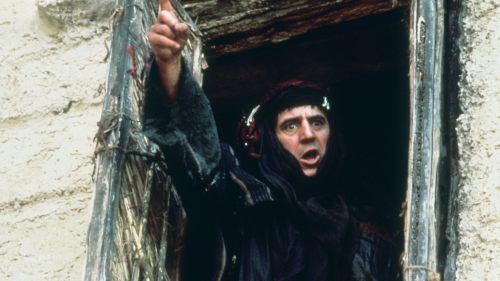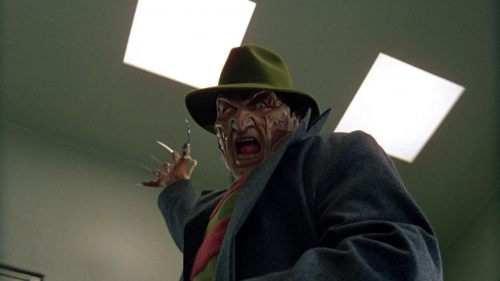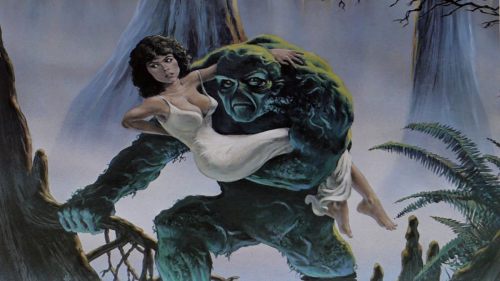Wes Craven 1939-2015
Wes Craven’s film career started in pornography, an unlikely jumping off point for a kid who had been raised such a strict Baptist he couldn’t even see movies as a child. After his dad died, Craven was raised by his sin-obsessed, alcoholic mother in a house where movies and pop culture and especially sex did not exist. But as was the case with fellow dark filmmaker and early victim of religious extremism Paul Schrader, all the praying in the world couldn’t get out his dark side. Only the movies could.
Craven discovered a love for the movies almost by accident. While teaching humanities at a small upstate New York school, Craven got drafted to help some of his students create a James Bond spoof. He took to filmmaking completely, and very quickly quit his job and moved his new family down to New York City, where he intended to write a great novel that he could turn into a screenplay.
That ambitious dream soon proved out of reach, and Craven was driving a cab and desperately trying to keep his family fed. As his marriage crumbled under the strain, he found work in pornography, mostly editing and writing. Craven was drawn not just to the dark side of human nature but also the taboo; all the things he had been denied as a kid he wanted to see and show now. His path crossed with another young pornographer, Sean Cunningham, and history was set in motion. Cunningham would get a deal to produce a bloody horror movie and he picked Craven to direct it. When Craven protested, saying that he had barely seen any horror movies at all, Cunningham told him “You were raised fundamentalist… use it!”*
Did he ever. Wes Craven’s first - and possibly most effective - movie was The Last House on the Left, a sick-making rape-revenge story that seemed to come from the bowels of the most disturbed mind of all time. Craven tapped into not just the dark side of himself that had grown despite his mother’s attempts to keep him pure but also his professorial interest in art cinema - the movie is a riff on The Virgin Spring. But it’s a riff played on the most jagged and evil instrument imaginable; one moment in Last House has gang leader Krug forcing his poor victim (the daughter of the couple who will take bloody revenge later) to piss on herself. It’s one of the meanest, most unpleasant movies ever made.
Craven had barely seen any horror movies but they were in his blood, it turned out. And they defined him; Last House came out in 1972 and it wouldn’t be until 1999 that he would finally get a chance to direct a film that wasn’t genre. Along the way he created not only some of the most iconic horror characters, he profoundly influenced the horror cycle with films that are now established classics.
Not all of Wes Craven’s films are great; in fact a look at his filmography shows a spotty record that would have ended lesser filmmakers. But when his career is taken as a whole even the stinkers like Deadly Blessing or Vampire in Brooklyn are interesting, and lesser films like Deadly Friend and Shocker become richer. His worst movie, My Soul to Take, is perhaps one of the all-time great bad movies, a trainwreck of monumental proportions that is incredibly entertaining and watchable and should, frankly, be a cult classic.
But his great movies stand like enormous peaks in the history of his career. The one-two punch of The Last House on the Left and The Hills Have Eyes (a stone cold classic) are joined by more commercial fare like A Nightmare on Elm Street, one of the seminal films of the 80s slasher genre (and a movie that still has profound cultural impact in a way none of its contemporaries can claim), and Scream, a movie that redefined horror cinema for an entire generation. His more underrated films, like The Serpent and the Rainbow and The People Under the Stairs, have been incredibly influential within the horror filmmaking community.
Craven’s best films reflected himself and his upbringing; they’re movies about family dynamics and about what happens when those family dynamics are invaded or warped. Like all the best filmmakers he kept exploring the ground that spoke to him personally, while also making it all fun as hell. Personally he was one of the nicest guys I have ever met; the anger and darkness he felt coming out of his religious upbringing and that informed his first two masterpieces were long gone by the time young me met him at horror cons and signings, and definitely very, very gone by the time professional me met him again at all sorts of events.
“Horror films don’t create fear, they release it,” Wes Craven once said, and in many ways he was the walking example of that.
*This quote comes from Jason Zinoman’s Shock Value. Cunningham, of course, went on to create Friday the 13th.



